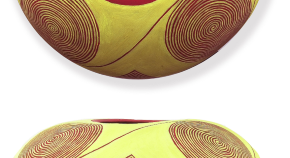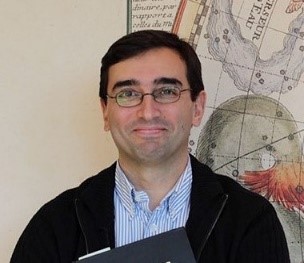
Collection
Evolving Cosmologies
- Submission status
- Closed
Cosmologies are worldviews on the nature of matter, space, and time that underlie ontology and epistemology formation in turn causative of cognitive, sociocultural, and ecological niche construction or worldbuilding. This issue addresses how exemplar cosmologies are embodied, materialized, reproduced, and transmitted in languages, artifacts, and sociocultural practices.
We invite contributions from philosophers and historians of science, anthropologists, cognitive scientists, linguists, archaeoastronomers and ethnoastronomers, and other interested scholars on topics including but not limited to:
evolutionary foundations of cognitive, sociocultural, and ecological worldview formation and world-building;
evolving cognitive, linguistic and sociocultural concepts of matter, space, time, and number, as well as causality, and hierarchy;
the role of agency, intentionality, teleonomy, and 4-E cognition in cosmology formation, including the role of the individual and the collective; and the extendedness and embodiment of cosmologies in material cultural artefacts;
cosmologies and the nature of reality/realities.
We welcome papers describing cosmologies emerging from the Neolithic onward and spanning all continents.
Editors
-
Nathalie Gontier
Nathalie Gontier has a background in the philosophy of science and cultural anthropology. Her research focuses on how evolution is defined by evolutionary biologists, and how evolutionary theories and methodologies can be implemented to study aspects of human symbolic evolution. She currently holds a research position at the Faculty of Science of the University of Lisbon, sponsored by the Portuguese Foundation for Science and Technology.
-
Luís Tirapicos
Luís Tirapicos is a researcher at the Interuniversity Centre for the History of Science and Technology and the History and Philosophy of Science Department at the Faculty of Sciences of the University of Lisbon. His main interests are the history of astronomy in Portugal and Spain, Jesuit science, Iberian archaeoastronomy and the material culture of science. An author of the Biographical Encyclopedia of Astronomers (Springer, 2014), edited by Thomas Hockey, Luís was a recipient of the 2017 Donald E. Osterbrock Book Prize for Historical Astronomy, awarded by the American Astronomical Society.
-
Chris Sinha
Chris Sinha is Honorary Professor at the University of East Anglia and holds honorary positions in China, Portugal and Spain. He is Past President of the UK Cognitive Linguistics Association and of the International Cognitive Linguistics Association. He has authored three monographs and numerous articles, and edited four volumes, in disciplines including anthropology, linguistics, education, evolutionary biology, connection science, as well as developmental and cultural psychology.
Articles (4 in this collection)
-

-
What Proto-logic Could not be
Authors
- Woosuk Park
- Content type: Original Paper
- Published: 02 August 2021
- Pages: 1451 - 1482
-
About the Origins of the Human Ability to Create Constructs of Reality
Authors
- Robert G. Bednarik
- Content type: Original Paper
- Published: 16 February 2021
- Pages: 1505 - 1524

-
Diagrams, Conceptual Space and Time, and Latent Geometry
Authors
- Lorenzo Magnani
- Content type: Original Paper
- Open Access
- Published: 08 February 2021
- Pages: 1483 - 1503





